Get Septic Installation in Longmont, CO
Septic installation services help Longmont property owners set up reliable wastewater systems, solving drainage problems and handling projects like new installations, repairs, or system upgrades.
Planning a septic installation is an important step for property owners in Longmont, CO, especially for those considering new construction, property upgrades, or areas where municipal sewer connections are unavailable. Ensuring the right system is in place can support the long-term functionality and value of a property. Exploring options and connecting with experienced local contractors can help clarify the process and identify solutions tailored to specific site conditions and property needs.
Property owners interested in septic systems often seek reliable, professional assistance to evaluate their land, understand local regulations, and select appropriate installation methods. Comparing services provided by nearby contractors can lead to informed decisions and a smoother project experience. Continuing to explore available options can help ensure that the chosen septic system meets the requirements of the property and the community.
- Septic System Installation - needed when installing a new septic system for a home or property in areas without access to municipal sewer services.
- Septic System Replacement - required when existing septic systems fail or become outdated in neighborhoods around Longmont, CO.
- Septic System Expansion - necessary for property additions or increased occupancy that demand larger or additional septic tanks.
- Septic System Upgrades - necessary to improve system performance or meet updated code requirements in rural or suburban properties.
- Septic System Inspection & Assessment - recommended before purchasing a property or if experiencing drainage issues in residential areas.
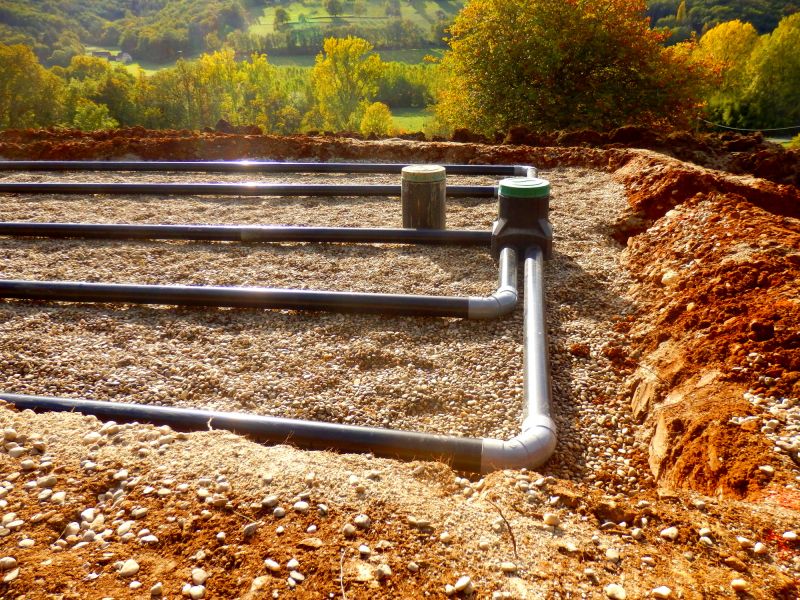
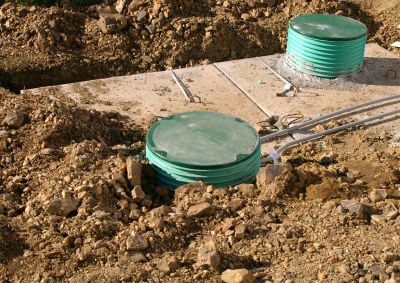
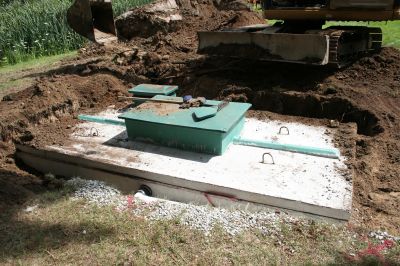
Septic installation services involve setting up a wastewater management system for properties that are not connected to municipal sewer lines. This process typically includes selecting the appropriate type of septic system, preparing the site, and installing the necessary components such as the septic tank and drain field. Proper installation ensures that household wastewater is safely treated and disposed of on-site, helping to prevent issues like backups, odors, and groundwater contamination. These services are essential for homes in rural or semi-rural areas where municipal sewer access is unavailable or impractical.
Many problems can arise when a property does not have a properly functioning septic system. These include foul odors, slow drains, and sewage backups inside the home. Over time, a poorly installed or failing septic system can lead to costly repairs and environmental hazards. Septic installation services help address these issues by providing a reliable, properly designed system that meets the specific needs of the property. Whether a home is being built from the ground up or an existing system needs replacement, experienced local contractors can assess the site and recommend the best solution.
Septic installation is commonly needed for residential properties that are located outside city limits or in areas where municipal sewer lines are not available. This includes rural farms, large estate homes, and some suburban developments. Properties with large land parcels often rely on septic systems to handle household wastewater efficiently. Additionally, properties undergoing new construction or significant renovations may require septic installation as part of the development process. These services ensure that the property remains compliant with local regulations and functions smoothly for everyday living.
Choosing to work with local service providers for septic installation ensures that the work is tailored to the specific conditions of the property and local regulations. Experienced contractors can evaluate soil types, property size, and usage needs to recommend the most suitable system. Proper installation by qualified professionals helps prevent future problems, preserves property value, and supports a safe and functional wastewater management solution. Contacting local experts is a practical step for homeowners who want to ensure their septic system is installed correctly and reliably from the start.
The overview below groups typical Septic Installation projects into broad ranges so you can see how smaller, mid-sized, and larger jobs often compare in Longmont, CO.
In many markets, a large share of routine jobs stays in the lower and middle ranges, while only a smaller percentage of projects moves into the highest bands when the work is more complex or site conditions are harder than average.
Smaller Repairs - Typical costs for minor septic repairs or maintenance in Longmont range from $250 to $600. Many routine jobs fall within this middle range, though prices can vary based on the specific issue and system size.
Standard Installation - Installing a new septic system generally costs between $3,000 and $7,000. Most projects in this category are straightforward and tend to stay within this range, with larger or more complex systems reaching higher amounts.
Full System Replacement - Replacing an existing septic system can range from $5,000 to $15,000 or more, depending on the size and site conditions. Larger, more involved projects with challenging terrain often push costs toward the upper end of this spectrum.
Complex or Custom Systems - Custom or highly engineered septic solutions can cost $10,000 to $20,000+ in Longmont. These projects are less common and typically involve specialized components or difficult installation environments, which can significantly increase costs.
Actual totals will depend on details like access to the work area, the scope of the project, and the materials selected, so use these as general starting points rather than exact figures.
Drain Field Installation - involves designing and installing underground systems to safely disperse wastewater, requiring similar planning and excavation skills as septic system setups.
Soil Testing and Site Evaluation - requires assessing soil conditions and suitability for underground systems, a key step in both septic installation and other subsurface projects.
Drainage System Construction - includes installing systems for managing surface and groundwater, which shares expertise in grading, trenching, and underground pipe work with septic services.
Leach Field Repair and Maintenance - focuses on repairing or maintaining existing underground drainage components, utilizing similar knowledge of soil and pipe systems as septic installation.
Water Line Installation - involves laying underground water pipes, requiring excavation and planning skills comparable to those used in septic system setup.
Underground Utility Installation - encompasses installing various underground utilities, demanding expertise in trenching, soil assessment, and underground piping akin to septic system projects.
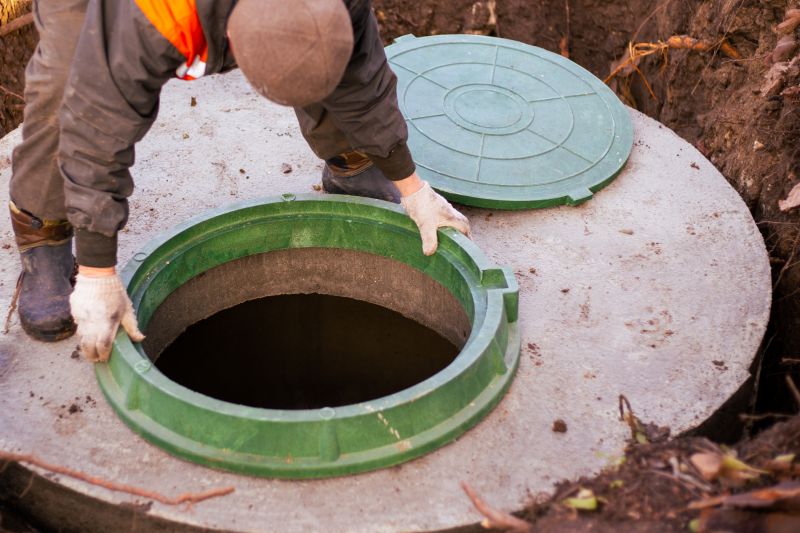
When comparing septic installation service providers in Longmont, CO, it’s important to consider their experience with similar projects. Homeowners should look for local contractors who have a proven track record of handling septic systems comparable to the scope and complexity of their specific needs. Asking for details about past work can help gauge whether a provider has the relevant expertise to manage the unique requirements of a property’s soil conditions, size, and usage patterns. An experienced contractor is more likely to anticipate potential challenges and deliver a reliable installation that meets the homeowner’s expectations.
Clear, written expectations are essential when evaluating septic installation services. Homeowners should seek detailed proposals that outline the scope of work, materials to be used, and the steps involved in the project. Having this information in writing helps prevent misunderstandings and provides a basis for comparing different service providers objectively. It’s also beneficial to clarify what is included and excluded from the service to ensure there are no surprises later. Well-documented expectations contribute to a smoother process and help homeowners feel confident in their choice of contractor.
Reputable references and effective communication are key factors in selecting a dependable septic installation professional. Homeowners can ask for references from previous clients who had similar projects completed, providing insight into the contractor’s reliability, professionalism, and quality of work. Good communication throughout the process is equally important, as it ensures questions are answered, concerns are addressed promptly, and updates are provided regularly. Connecting with local service providers who prioritize transparency and responsiveness can foster a positive working relationship and help ensure the successful completion of the septic system installation.
Property owners in Longmont, CO use Septic Installation services for practical projects around their homes and businesses. This guide focuses on everyday jobs and straightforward project options.
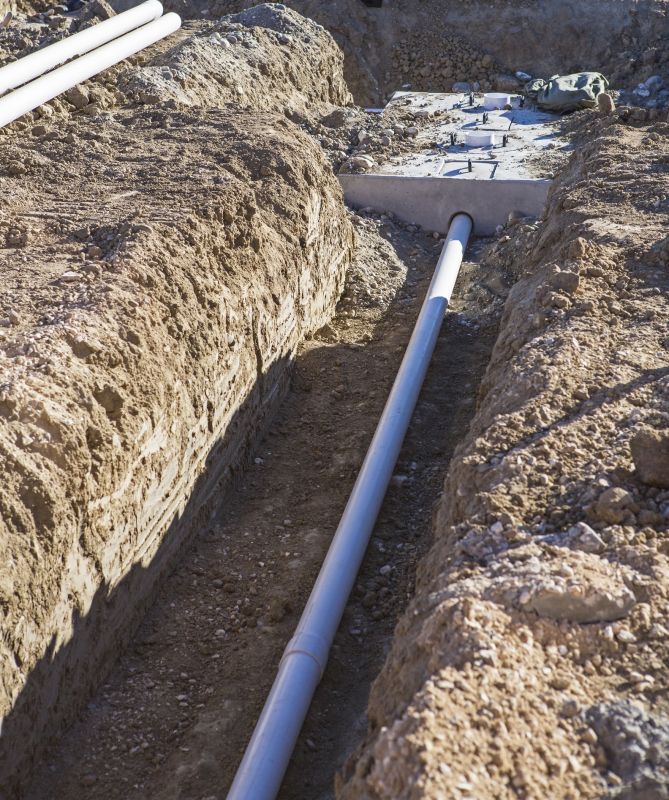
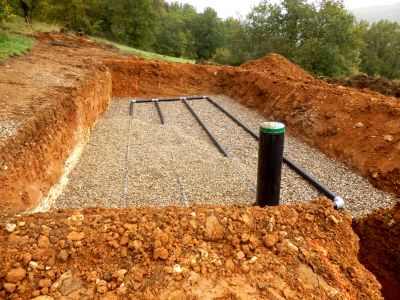
Septic installation services are often needed when property owners in Longmont, CO are developing new land, building a home, or replacing an outdated system. In areas where municipal sewer connections are unavailable, ensuring a properly functioning septic system is essential for daily living. Local contractors can assist with assessing site conditions, designing suitable systems, and managing the installation process to meet local regulations and standards.
Homeowners may also seek septic installation when experiencing issues with their current system, such as frequent backups, odors, or failure to drain properly. These signs can indicate the need for a new installation or upgrades to improve system performance. Local service providers are equipped to handle these projects efficiently, helping property owners maintain a safe and functional septic system for everyday use.
What is involved in septic installation? Septic installation typically includes site assessment, system design, excavation, and the setup of the septic tank and drain field by local contractors experienced in the process.
How do I know if my property needs a new septic system? A property may require a new septic system if existing systems are failing, there are drainage issues, or if the property is newly developed and requires a wastewater solution.
What types of septic systems are available? There are various types of septic systems, including conventional gravity systems, alternative systems like mound or aerobic treatment units, depending on site conditions and local regulations.
What should I consider when choosing a septic installation service? When selecting a service provider, consider their experience with local soil conditions, reputation, and ability to handle the specific requirements of the property.
What permits are needed for septic installation? Local contractors typically help with obtaining necessary permits and ensure the installation complies with regional codes and regulations in Longmont, CO, and nearby areas.
Septic System Installation - Property owners can explore installing a new septic system for a home addition or renovation project to ensure proper waste management.
Septic Tank Replacement - Homeowners may need to replace an aging septic tank to improve system reliability and prevent potential backups.
Septic System Upgrades - Property owners can consider upgrading their existing septic system to accommodate increased household size or usage.
Septic System Inspection - Regular inspections by local contractors can help identify issues early and maintain optimal system performance.

If you are thinking about Septic Installation for a property in Longmont, CO, this guide is meant to help you understand the work, the typical project types, and how different options might fit your plans.
When you are ready, you can use the quote form on this page to share a few details about your project. From there, local pros can review the basics and respond with options that match what you have in mind.



